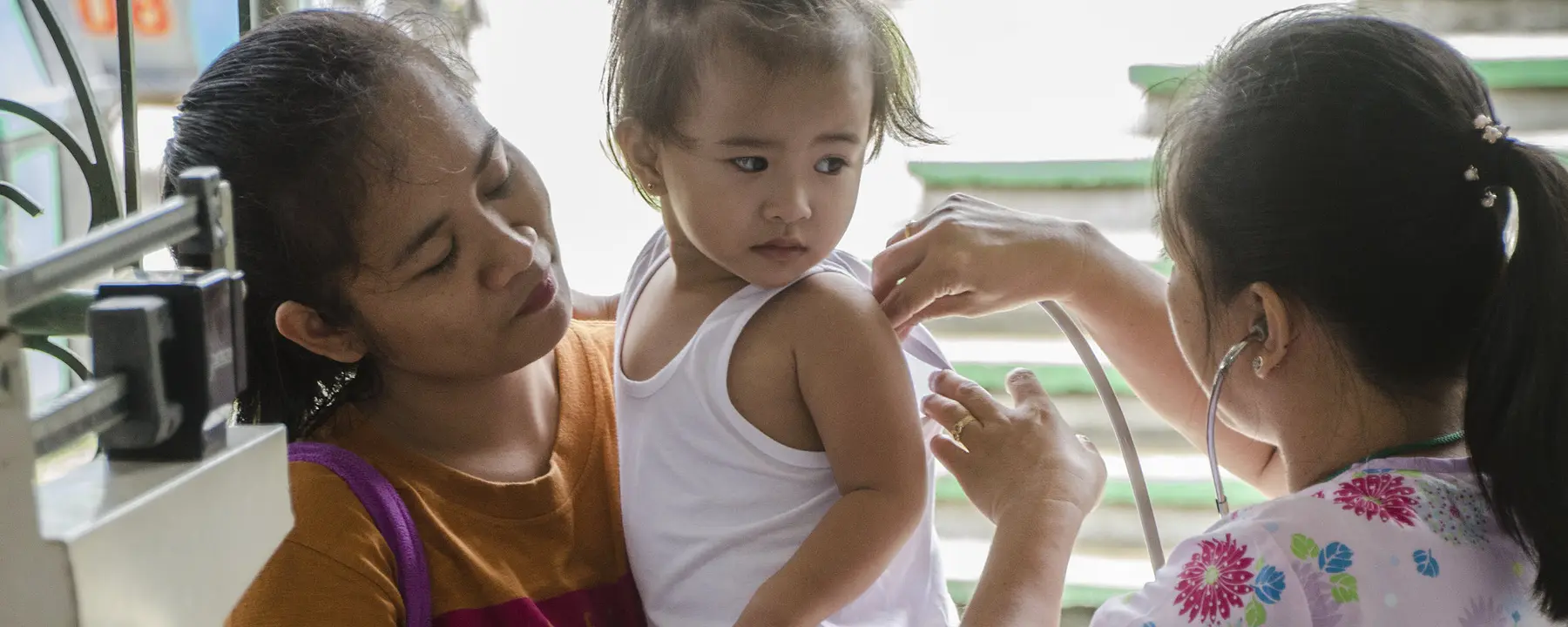Strengthening local health policies and systems to increase service utilization and improve health outcomes for Filipino families
In Luzon, the largest and most populous island in the Philippines, trends in family planning stagnated or, for some methods, even declined over a five-year period beginning in 2008. The island also faced increasing numbers of teenage pregnancies and low rates of exclusive breastfeeding. Across Luzon’s regions and provinces, the rate of births attended by a skilled health provider varied, as did the rate of births taking place in health facilities.
To help address these challenges, in 2013 the U.S. Agency for International Development (USAID) launched LuzonHealth, a project that aims to improve the health of families in 14 provinces and seven cities in the Philippines by expanding their access to high-quality, integrated family planning and maternal, neonatal, child health and nutrition services (FP/MNCHN).
Integrating and Scaling Best Practices and Innovations in Philippines Health Care and Health Systems
As the lead implementing partner for LuzonHealth, we provided technical assistance to
- Increase demand for FP/MNCHN services
- Improve the supply of those services
- Strengthen policy and health systems that have proven to be cost-effective.
Across 21 project sites, we worked with eight Department of Health Regional Offices, as well as provincial/municipal/city health offices, other stakeholders and implementing partners, and related USAID-supported projects. In total, LuzonHealth covered an area that is home to 33.8 million people.
Aligned with relevant government strategies and policies, LuzonHealth focused on increasing family planning use and improving maternal and newborn care—with the ultimate goal of improving health outcomes. We supported this work by enhancing the role of hospitals in FP/MNCHN training and service delivery, modeling adolescent health interventions, increasing collaboration with the private sector, and replicating and scaling up best practices and innovations.
We led a range of family planning activities to prevent unintended and high-risk pregnancies, which otherwise could endanger women’s health and lives. We also worked to improve maternal and child health by
- Training health service providers in basic emergency obstetric and newborn care
- Disseminating information and education materials on women’s health and safe motherhood, including the benefits of exclusive breastfeeding
- Upgrading health facilities as FP/MNCHN service delivery points, ensuring that these facilities are staffed with trained and capable health workers, and have adequate health supplies.
Under LuzonHealth, we also supported local implementation of the Philippines’ National Health Insurance Program. Our team helped selected health facilities to secure proper accreditation for maternity/newborn care packages. This allowed poor households and individuals who enroll to have greater access to maternal and newborn services.
Building Local Capacity to Sustain Improvements in Health Outcomes
In its first four years, LuzonHealth developed and introduced tools, systems, and capacity-building approaches to help regional and local health offices beyond the project, including
- Multiple demand-generation strategies to reach men, women, and adolescents with age-specific messages. These strategies included health events, facilitated group discussions, individual counseling sessions, and family planning and antenatal care messages for mothers who visit a health facility for their child’s immunization.
- A package of technical assistance for the training continuum, which aimed to improve the quantity and quality of FP/MNCHN service providers. The package includes competency assessments, training in relevant FP/MNCHN courses, supervision and mentoring following the training, and “training of trainers” to institutionalize capacity-building initiatives.
- Interventions to improve data quality, logistics management, and identification and referral of clients with unmet needs, including tracking how clients use services.
- “Training of trainers” courses and technical assistance to Department of Health Regional Offices.
Concrete Results and Sustainable Impact for Health
Technical assistance we provided through LuzonHealth resulted in significant improvements in service utilization in project sites. For example, between 2013 and 2015, we saw an increase—from 53 percent to 63 percent—in the proportion of births attended by skilled birth attendants, and the proportion of facility-based deliveries increased from 48 percent to 62 percent. Also, between 2014 and 2015, the number of people who use family planning services in project sites increased by 2.5 percent.
In its final year, LuzonHealth focused on sustaining achieved gains to increase the availability and accessibility of FP/MNCHN services. Our experts worked to further strengthen family planning services in public hospitals, modify and enhance existing demand-generation strategies to ensure priority groups use needed services, and partner with the private sector to enlist their participation in existing FP/MNCHN service delivery networks.
- U.S. Agency for International Development (USAID)
- Jhpiego

